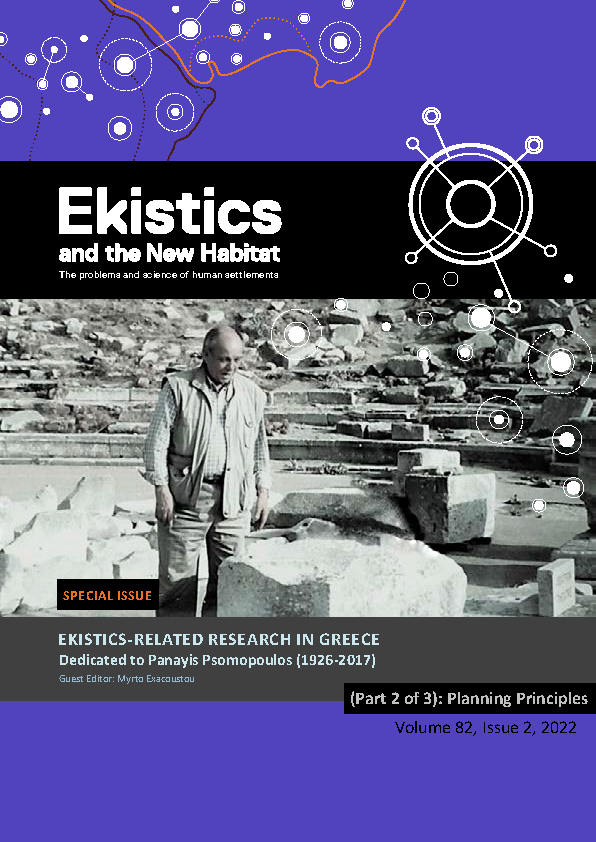The Systemic City
DOI:
https://doi.org/10.53910/26531313-E2022822711Keywords:
Space Syntax, Systemic Theory, Articulating Strips, Meta-Architecture.Abstract
This paper presents a synthesis of research outcomes based on the international research group, Urban Design and Quality of Life. Formed by Ioannis Aris Alexiou, who, as Director (2005 – 2011) of the Master in Urban and Regional Planning of the Pontificia Universidad Javeriana, focused on the planning of articulating nodes and structures for the territorial organization of urban systems under cooperation, the research group was informed by the theoretical framework of Systemic Theory, Ekistics, Complexity Theory, and the principles of the molecular biology of living ecosystems. The central hypothesis of the following proposal for a systemic city is to confirm that the systemic cooperation between urban, natural, and human social systems, creates the necessary conditions for maintaining sustainable human settlements for the future.
Published
How to Cite
Issue
Section
Categories
License
Copyright (c) 2024 Ekistics and The New Habitat

This work is licensed under a Creative Commons Attribution-NonCommercial-NoDerivatives 4.0 International License.
Please contact the Editor-in-Chief: editor@ekisticsjournal.org, should you have any questions on copyright for your submission.
This research journal is for Educational and Knowledge development purposes.
All material published on this site complies with our copyright and terms as described by the Attribution-NonCommercial-NoDerivaties 4.0 International (CC BY-NC-ND 4.0)






